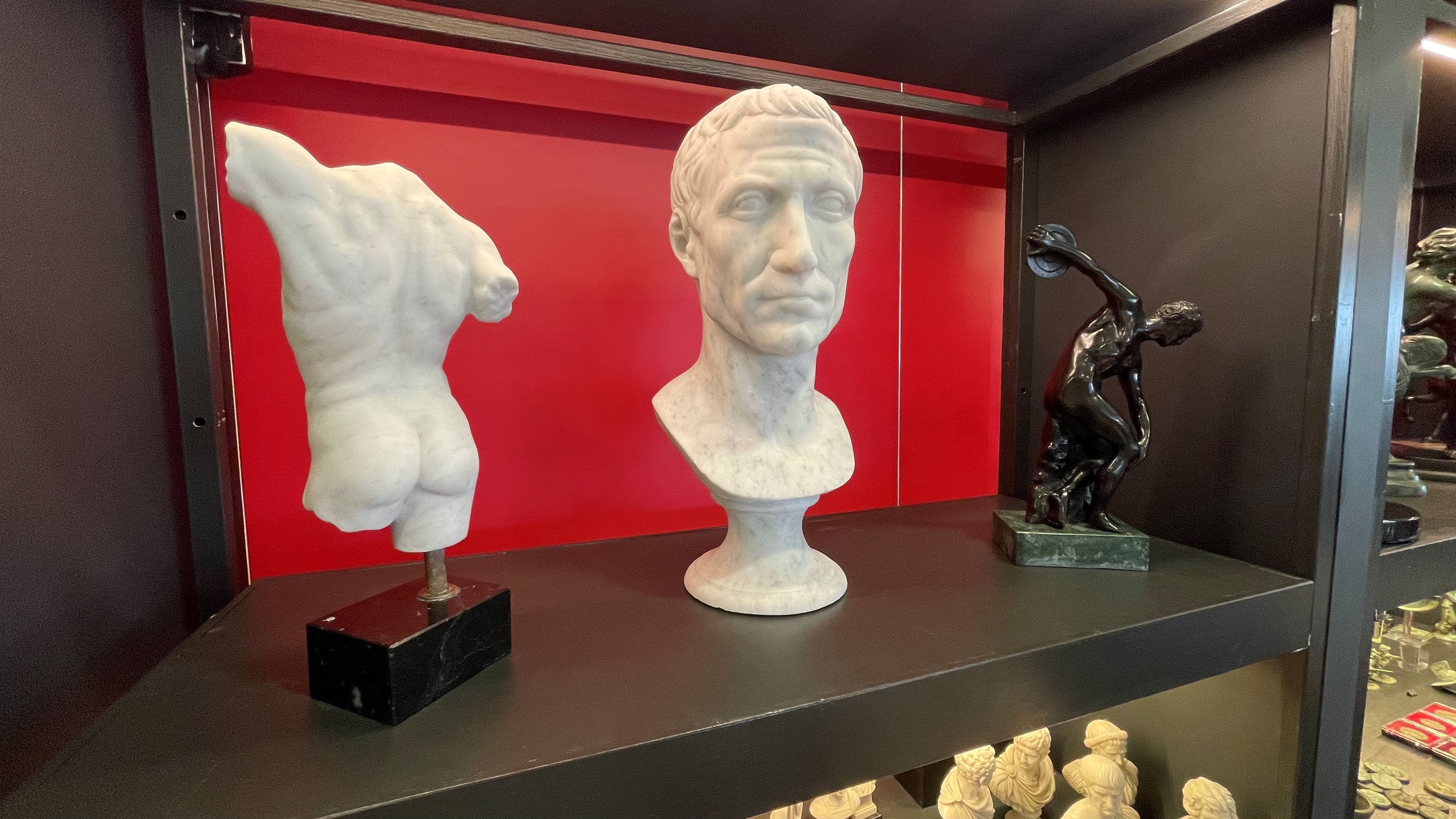Name for your product
- Regular price
- $19.99
- Sale price
- $19.99
- Regular price
-
Name for your product
- Regular price
- $19.99
- Sale price
- $19.99
- Regular price
-


Caesar was an innovator in everything: in the way of waging war, of communicating, of governing.
He was among the first to use written propaganda, through his accounts of wars such as in De Bello Gallico, and he managed to build a strong and modern public image.
He had a natural charisma, military firmness, and political vision.
And he knew how to communicate in an extraordinarily effective and concise way:
"The die is cast", "Veni, vidi, vici" — few words that tell a lot.
He was also a great lawyer: cultured, courageous, with a refined eloquence.
His oratory talent was fundamental for his political rise.
Even later, as a commander and politician, he never abandoned rhetoric.
He wrote his Commentaries not only to document his exploits,
but to influence public opinion and legitimize its choices.
According to Cesare, the word was the first strategic weapon — more powerful than the sword.
Intrigues, alliances, wars, loves, betrayals and a tragic death: the life of Caesar has all the elements of a great epic.
This is why it has inspired literary works, films, TV series and continues to fascinate popular culture.

Cesare has become the archetype of absolute power, the man who challenged the established order to create a new destiny.
His story invites reflection on eternal themes:
the boundary between ambition and arrogance, between glory and solitude, between progress and tradition.
From the Julian calendar to the month of July (Julius), up to the title of "Caesar", adopted by emperors and becoming Kaiser, Tsar…
his name is etched into Western culture indelibly.
His legacy is not limited to the historical figure, but is rooted in the political, linguistic, and cultural structures of modern Europe.
One of the most profound effects of his action was the Latinization of Europe, begun with his military campaigns, particularly during the Gallic War.
In addition to the language, Caesar brought the Romanization of law, customs, architecture, and religion.
Cities like Lugdunum (Lyon) and Londinium (London) became cultural and political centers, still marked by Roman civilization.
Julius Caesar not only expanded an empire: he shaped the identity of Europe.


















